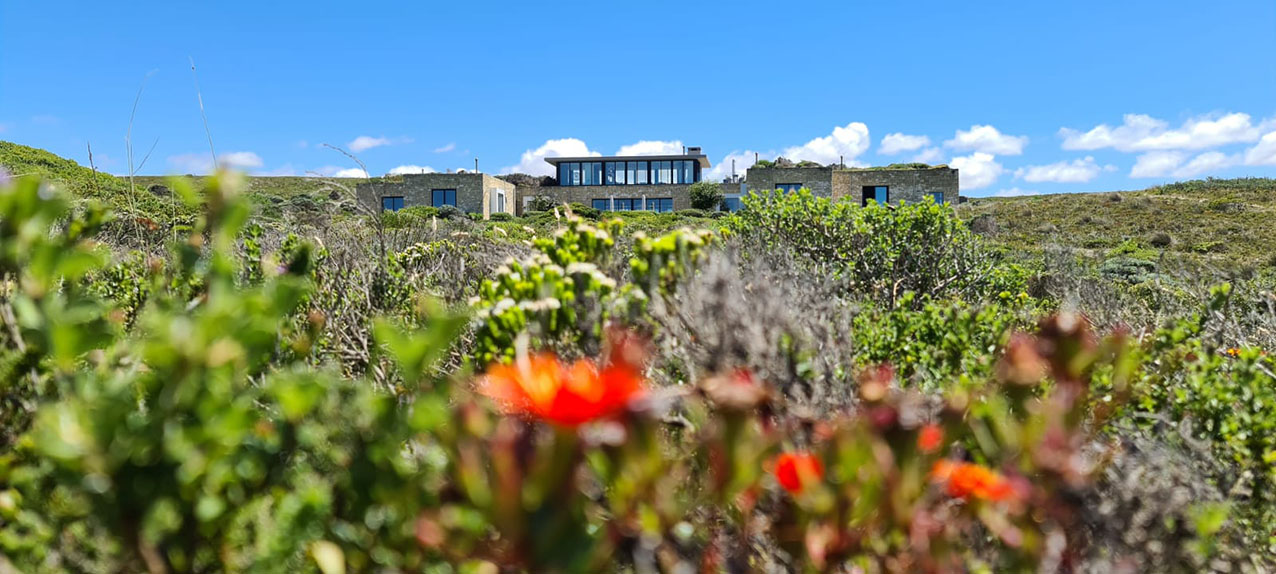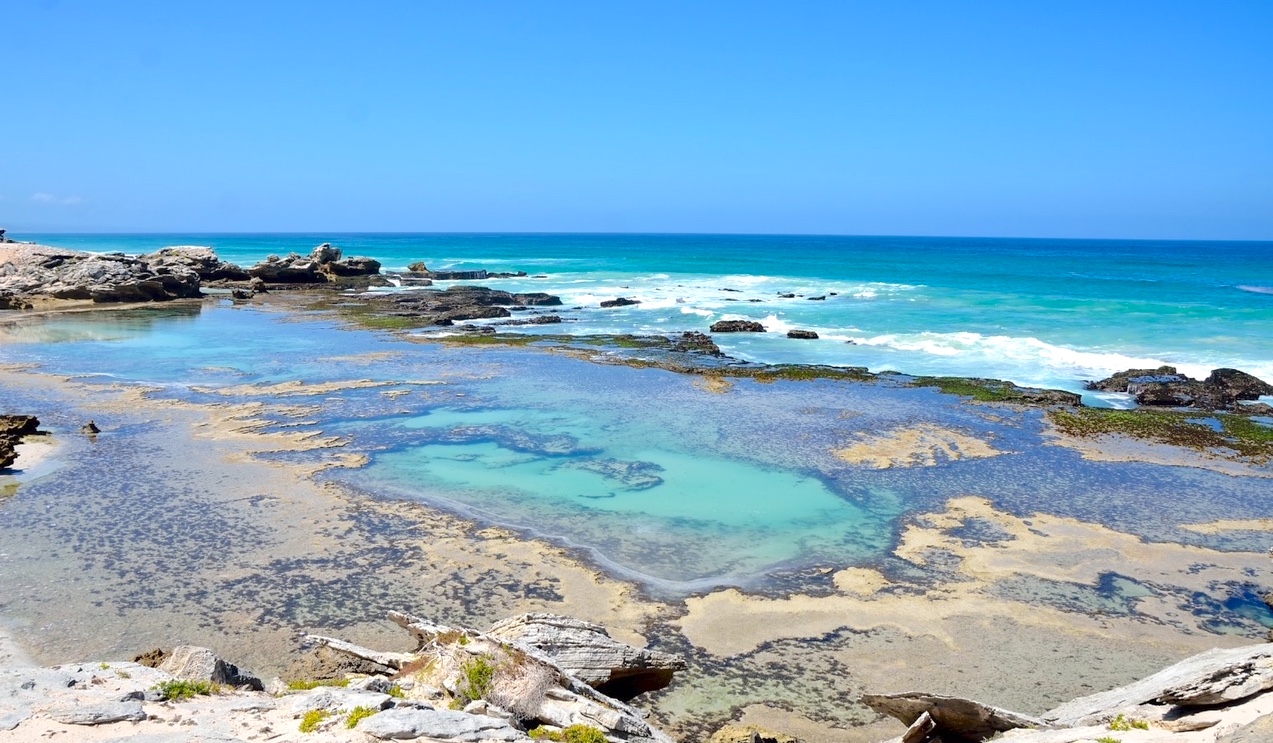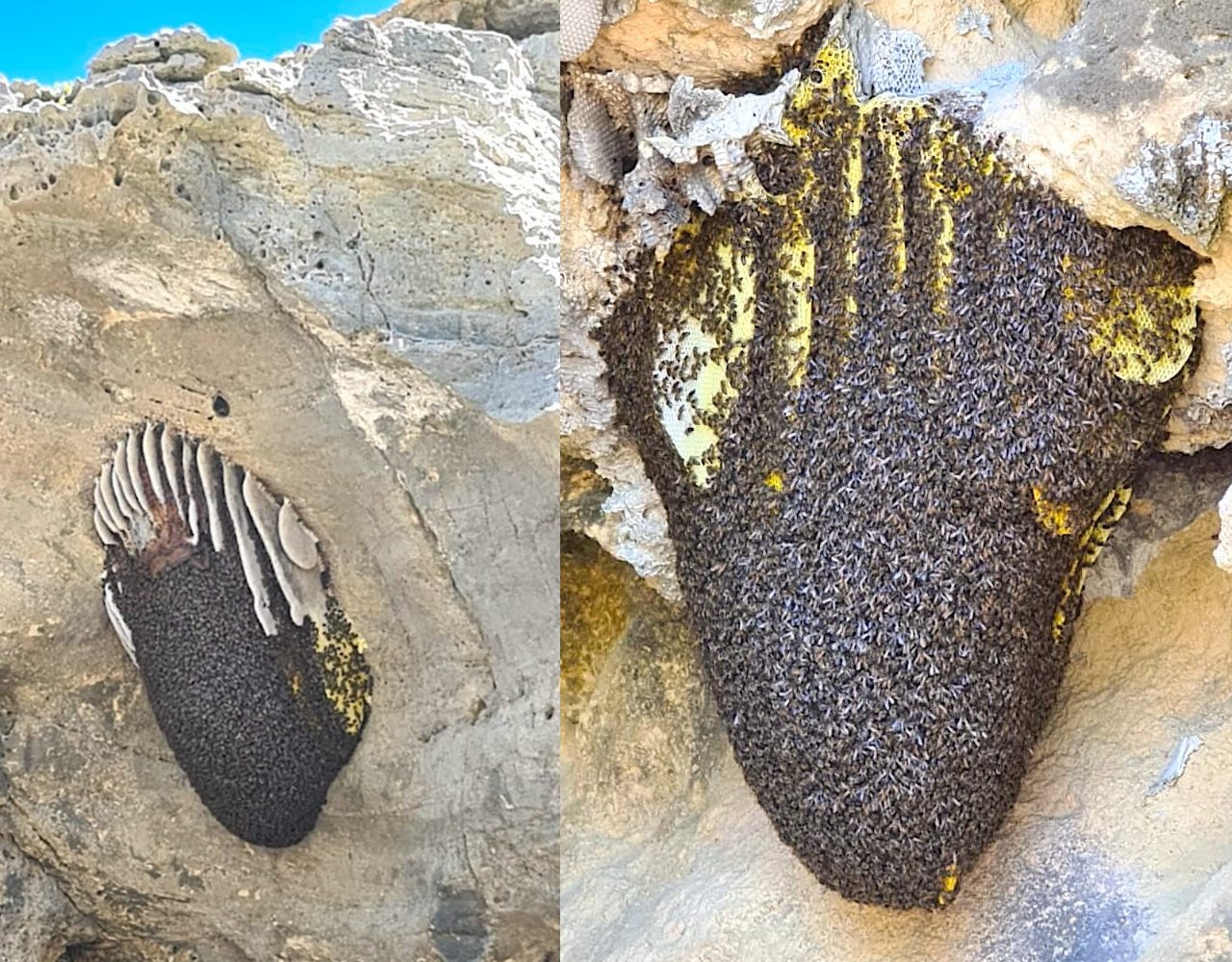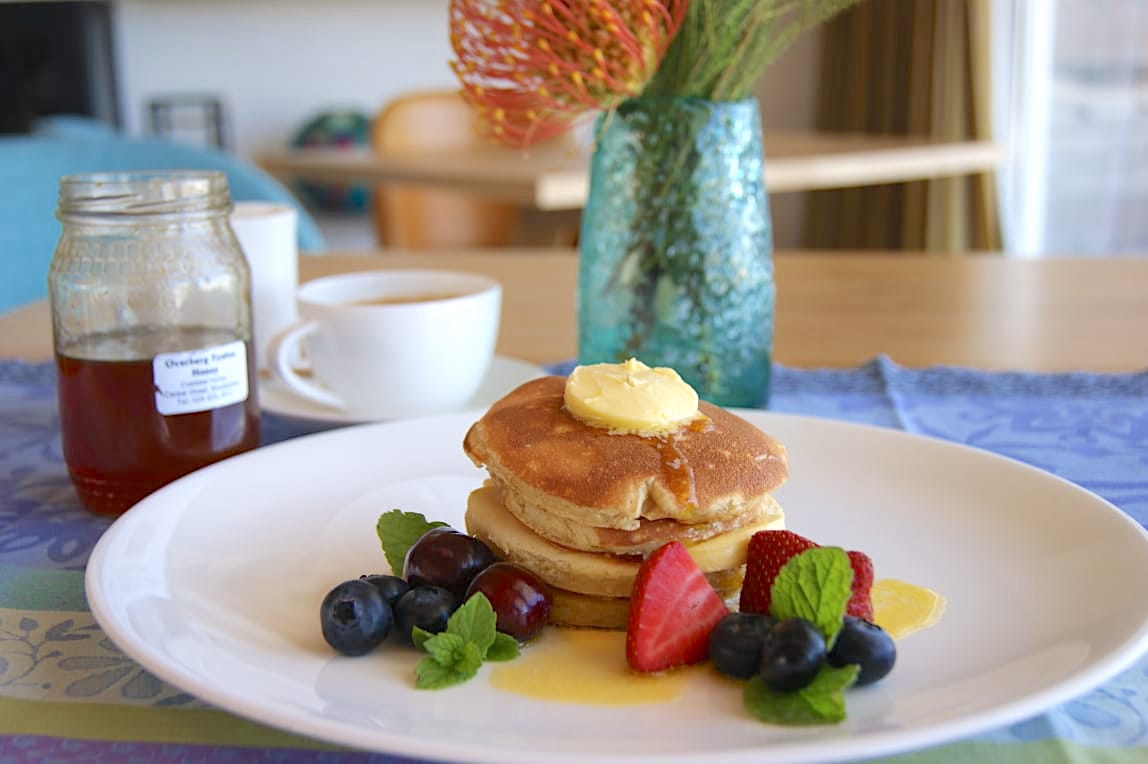

Research shows that in 1990 beekeepers transported Cape Honey bees to North Africa where they do not occur naturally. In December 2008 American foulbrood disease spread to the Cape Honey Bee population. American foulbrood is caused by spore-forming bacteria and is a highly infectious bee disease. By 2015 an estimated 40% of that region's honey bee population had been wiped out.
In addition, over 300 hives were destroyed in 2017 during the catastrophic Knysna fires, and subsequent blazes in the Thornhill area near Port Elizabeth wiped out another 700 hives. Following this devastation, the Cape Honey bee was recognised as extremely vulnerable and dedicated conservation areas were established by farmers and beekeepers. Special bee stands were created, offering bees food and water. These efforts encouraged repopulation and provided protection so that numbers of bees and hives could slowly increase once again.
The hive in De Hoop Nature Reserve is situated near the Hippo Pools Beach. We visit this area regularly for beach days, and are privileged to witness this unbelievably impressive and very active hive. The original hive that was built nearly five years ago was too low to the ground and was consequently destroyed by resident honey badgers. The bees then rebuilt the hive higher up where it is now much safer and more difficult for these natural predators to access. The new hive has been standing strong for over three years now, and as the bee population increases so too does the hive. The bees are active all year round, and guests can view this fantastic site on our guided Marine Walks.






